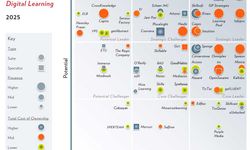Academic accommodations include measures such as extended time for exams and assignments, note-taking assistance, access to quiet spaces for test-taking, and reduced course loads.
According to data from the Canadian University Survey Consortium, 29% of students at Maritime universities reported a disability in 2019, rising to 37% in 2022. This exceeds the figures from universities outside the Maritimes, where 24% of students reported disabilities in 2019, increasing to 30% in 2022.
Mental health issues, particularly anxiety and depression, account for more than half of reported disabilities.
Amanda Manning, manager of accessibility services at St. Thomas University (STU) in Fredericton, observed a threefold increase in students reporting disabilities at the institution between 2013 and 2023. She attributed this to reduced stigma surrounding learning disabilities and mental health, as well as the academic disruptions caused by the COVID-19 pandemic.
The University of New Brunswick (UNB) has also seen a significant rise, with a 53% increase in students receiving accommodations since 2018. UNB has introduced software to streamline the approval and delivery of accommodations and added staff to support students on its campuses, according to spokesperson Kathleen McLaughlin.
Commonly provided accommodations address mental health challenges, attention deficit hyperactivity disorder (ADHD), and learning disabilities.
Mount Allison University in Sackville reports that about 20% of its students identify as having a disability. While this is below the national average, it reflects a steady increase over the past five years. Acting director of accessibility and student wellness Cindy Crossman highlighted the growing adoption of inclusive teaching strategies, which aim to remove barriers to learning by offering multiple ways for students to engage and demonstrate knowledge.
One such approach, known as universal design for learning (UDL), involves offering course materials in various formats and allowing students to choose how to complete assignments. UDL also encourages flexible learning environments and more accessible teaching materials.
Crossman noted that while these changes may increase workloads for professors, they create a more inclusive classroom environment and benefit all students.
Manning emphasized the need for universities to adapt to the evolving landscape of student needs, particularly in the wake of the pandemic.
This article was originally written by Allyson McCormack for CBC News and has been adapted for our audience.
Source: https://www.cbc.ca/news/canada/new-brunswick/university-students-reporting-disabilities-1.7432868






